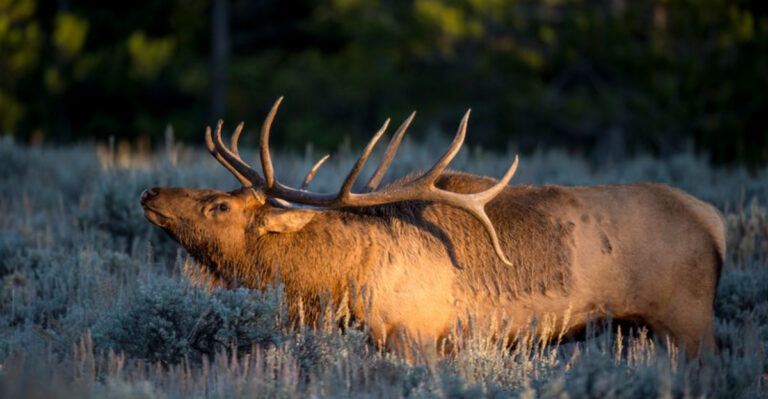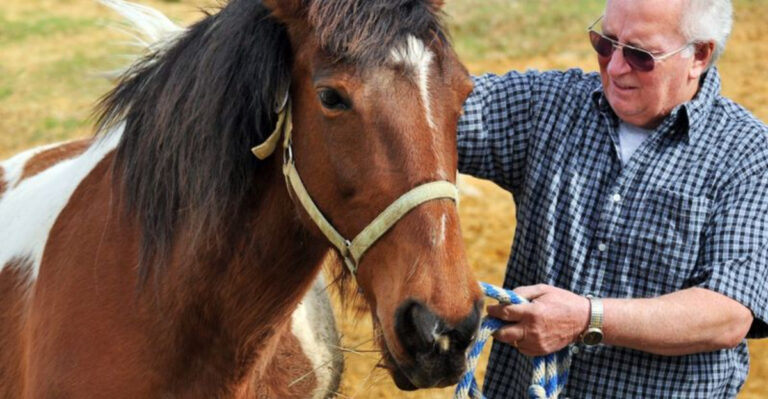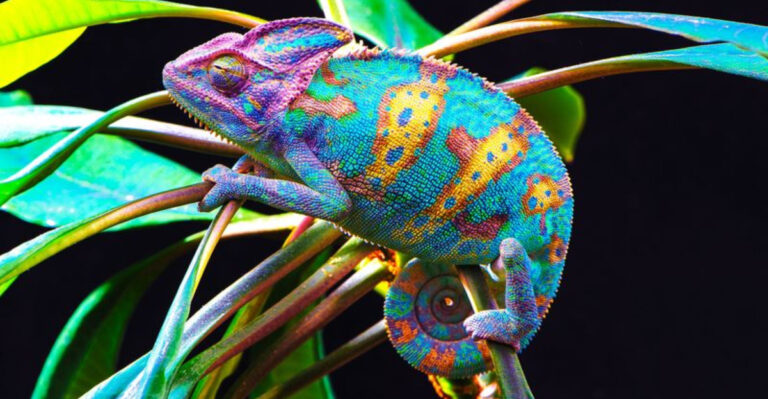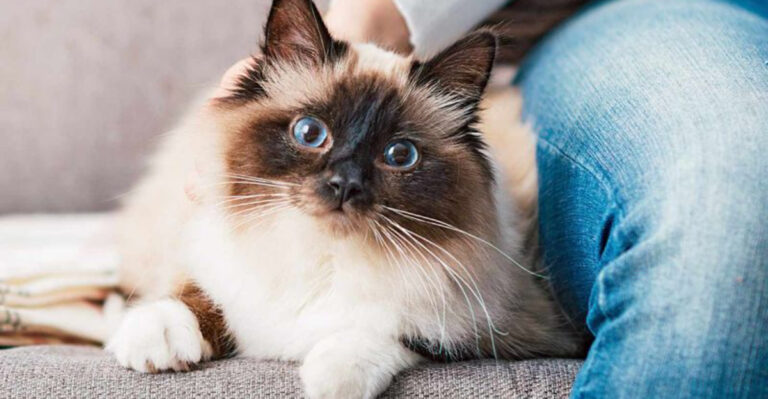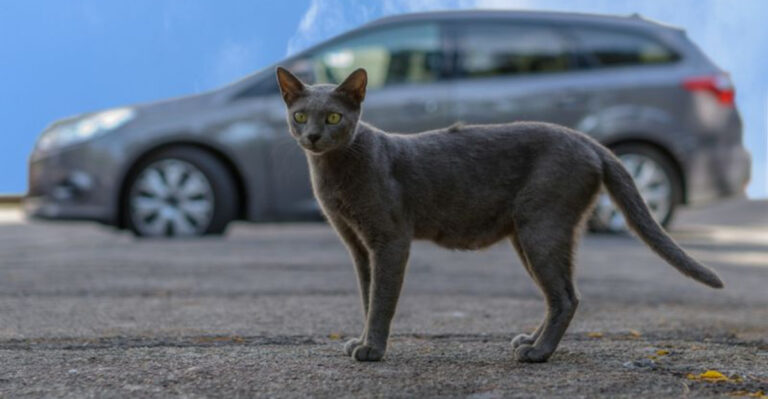10 Worst Dog Breeds For Cats (And 5 That Make Surprisingly Great Cat Companions)
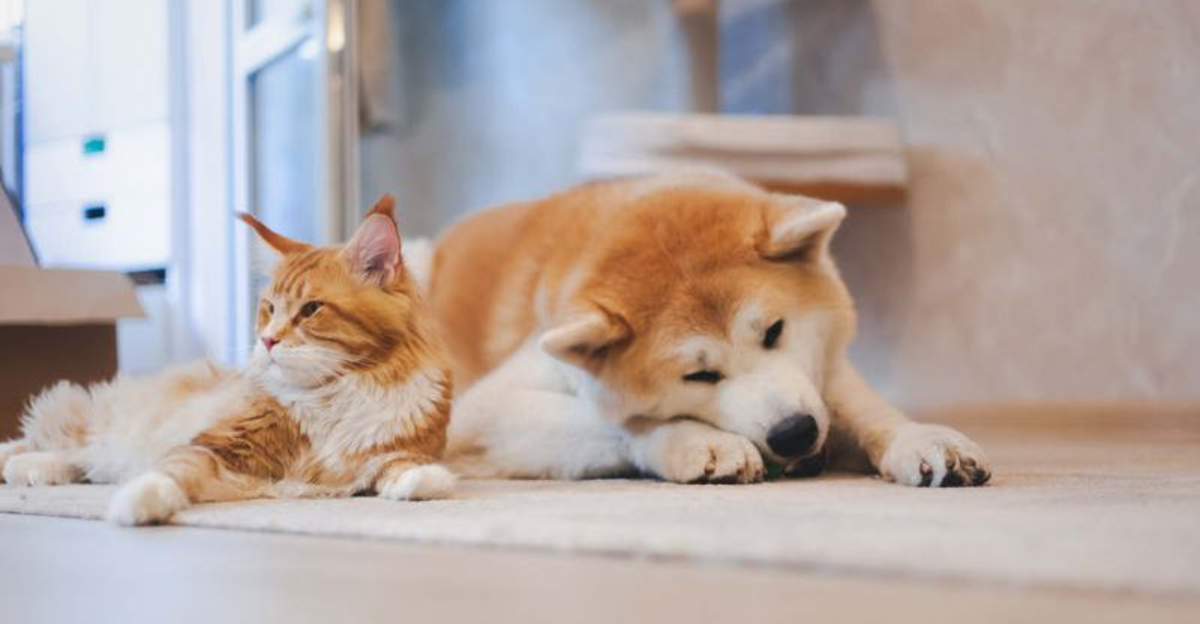
Ever wondered if your dream dog will get along with your feline friend? Not all canines view cats as potential buddies – some see them as prey to chase or rivals to challenge.
Understanding which breeds naturally get along with cats and which ones don’t can save you from household chaos.
1. Greyhounds: Speed Demons With Prey Drive
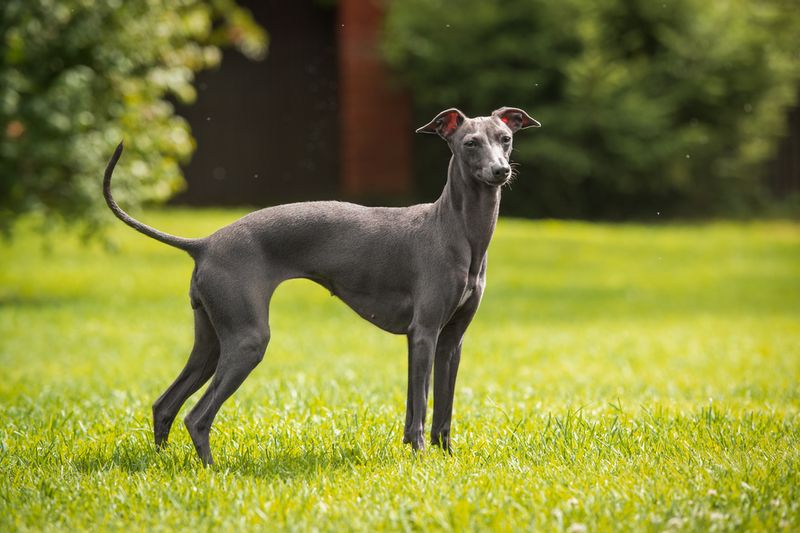
Born to chase, Greyhounds possess a deeply ingrained instinct to pursue small, quick-moving animals. Their racing background has hardwired them to bolt after anything that flees – including your unsuspecting tabby.
Training can help moderate this behavior, but many Greyhounds simply cannot overcome their natural prey drive. Those raised with cats from puppyhood have better chances of peaceful coexistence.
2. Australian Cattle Dogs: Herding Machines
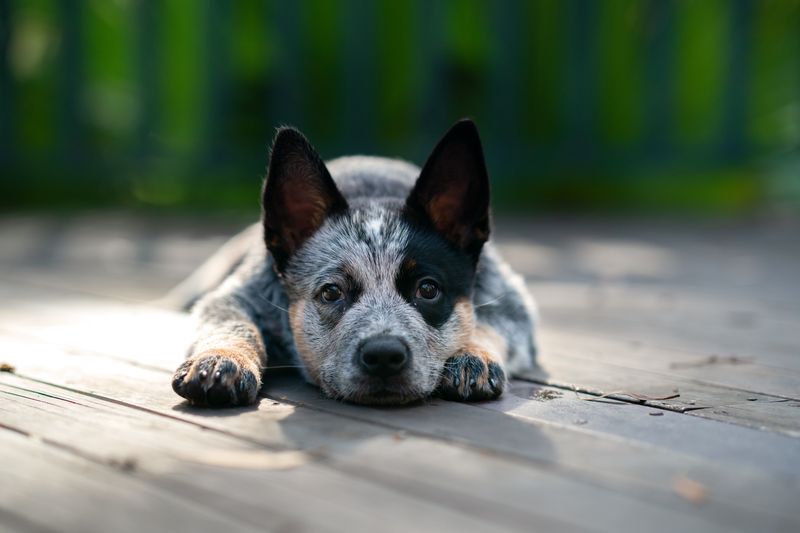
Fiercely intelligent and born to control livestock, Australian Cattle Dogs often view cats as unruly animals that need managing. Their herding tactics – including nipping at heels and aggressive circling – terrify most felines.
These working dogs possess boundless energy and determination. Without proper training and socialization from an early age, their intense focus and drive can make life miserable for cats who just want to lounge in peace.
3. Jack Russell Terriers: Feisty Hunters
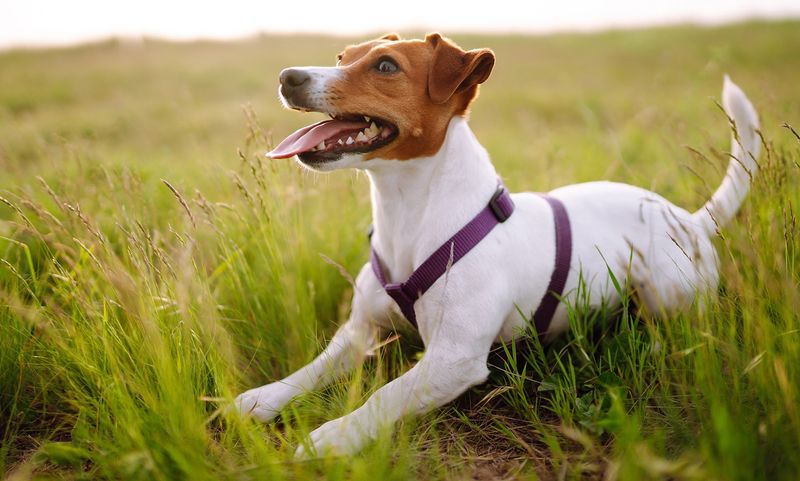
Small but mighty, Jack Russell Terriers were specifically bred to hunt vermin. Their lightning-fast reflexes and tenacious nature make them formidable opponents for cats despite their compact size.
When a Jack Russell locks onto a target, their stubborn determination kicks in. Many cat owners report these terriers simply won’t give up the chase, creating constant stress for felines. Their high energy levels and natural hunting instincts rarely fade, even with extensive training.
4. Siberian Huskies: Wolf-Like Chasers
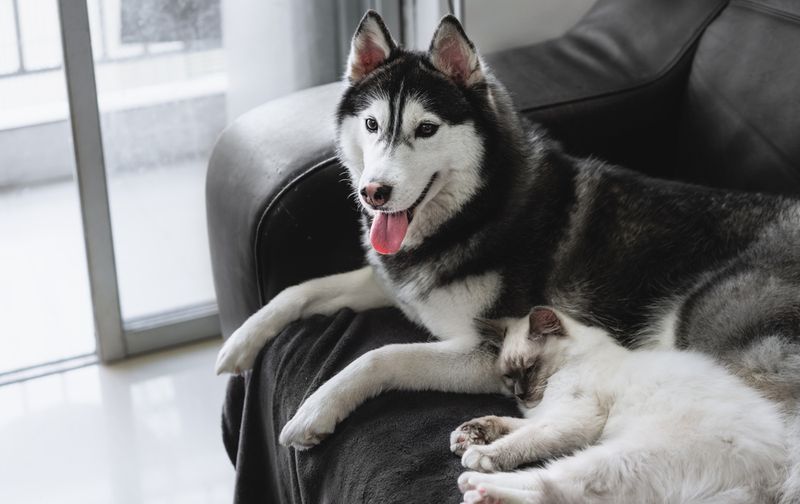
Majestic and wild-spirited, Huskies retain many wolf-like traits – including a strong prey drive that targets smaller animals. Their playful pouncing often crosses into predatory behavior when cats are involved.
Escape artists by nature, Huskies will actively seek ways to pursue cats that run from them. Their high energy needs and pack mentality can make them overwhelming for most felines. Even well-socialized Huskies may never fully suppress their instinct to chase fleeing cats.
5. Weimaraners: Gray Ghosts With Hunting Heritage
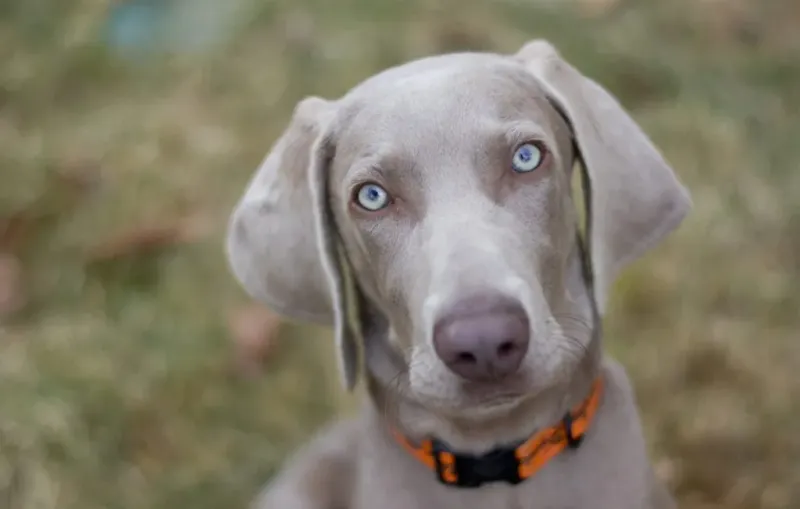
Nicknamed “Gray Ghosts” for their striking appearance and stealthy movements, Weimaraners were developed as versatile hunting dogs with exceptional tracking abilities. Their powerful prey drive makes cats natural targets in their eyes.
These intelligent dogs become fixated on small moving objects – a disaster for curious cats. Even with training, many Weimaraners cannot distinguish between appropriate prey and beloved household pets, leading to constant stress for feline family members.
6. Beagles: Nose-Driven Pursuers
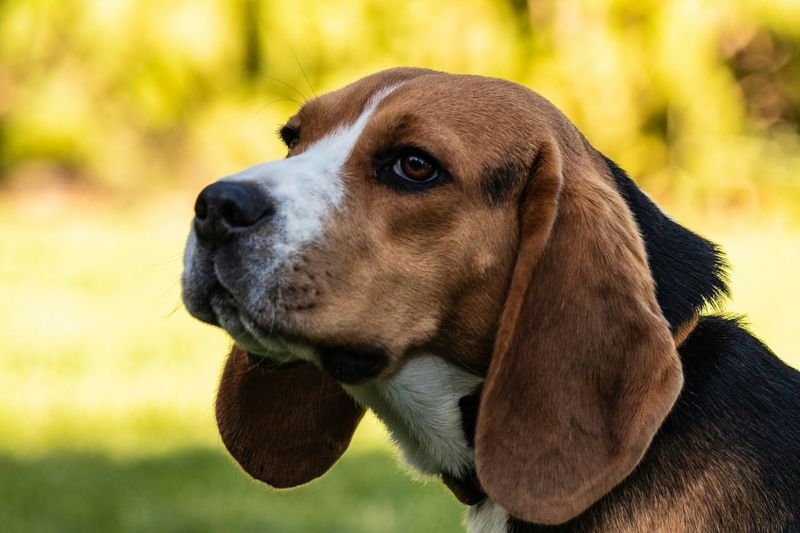
Those adorable floppy ears hide a relentless hunter with an extraordinary sense of smell. Beagles follow their noses with single-minded determination, often ignoring commands when on a scent trail – including the trail of your cat.
Originally bred for rabbit hunting, Beagles view small animals as targets to be pursued. Their howling during the chase adds another layer of stress for cats. While generally good-natured, their hunting instincts can override their friendly disposition when felines dart across their path.
7. Akitas: Powerful Protectors With Predatory Instincts
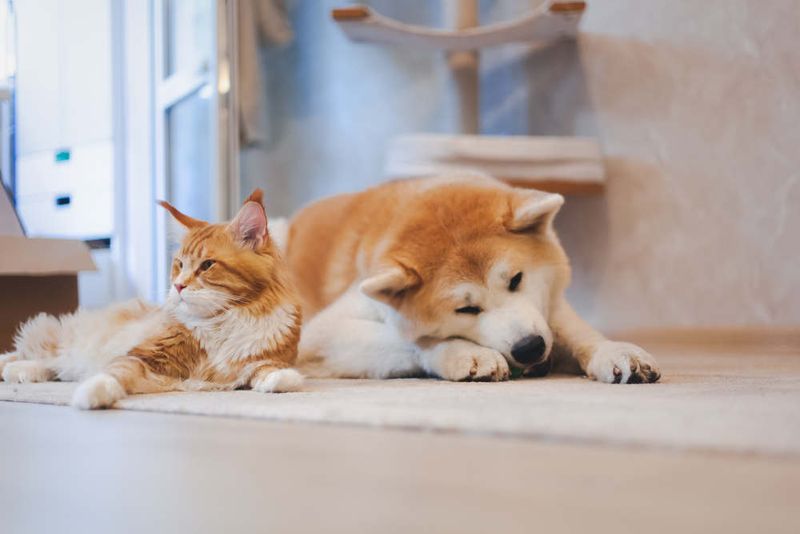
Regal and imposing, Akitas were bred as guardians and big-game hunters in Japan. Their territorial nature and prey drive can spell trouble for cats who naturally trigger their hunting responses.
Akitas form strong bonds with their human families but often view other animals as outsiders or potential prey. Their size and power make any aggressive interaction with cats potentially dangerous. Even well-trained Akitas may never fully accept feline housemates outside their perceived pack.
8. Rhodesian Ridgebacks: Lion Hunters With Cat Issues
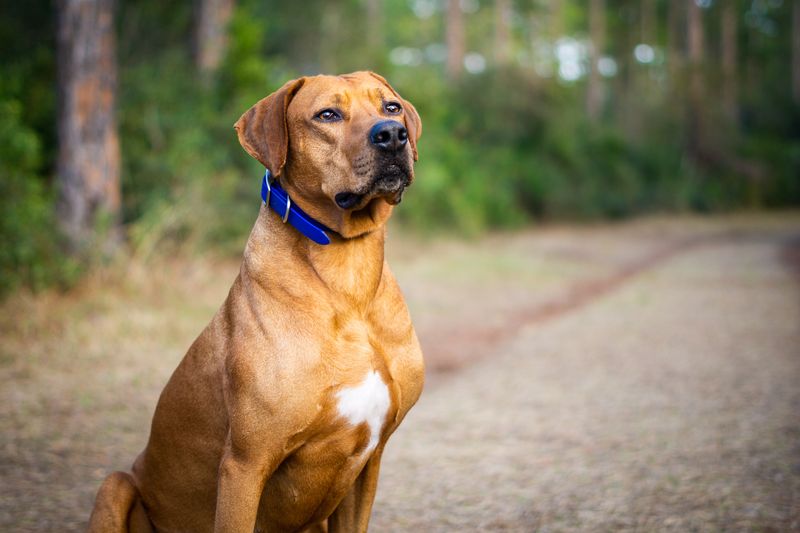
Originally bred to track and bay – but not kill – lions in Africa, Rhodesian Ridgebacks possess remarkable prey drive and athleticism. Their hunting heritage makes them naturally inclined to chase smaller animals, especially those that run.
The distinctive ridge of backward-growing hair along their spine marks a dog with incredible stamina and determination. Once they’ve identified a cat as prey, Ridgebacks can be difficult to redirect. Their size and strength create significant risk factors in homes with cats.
9. Malamutes: Powerful Pack Hunters
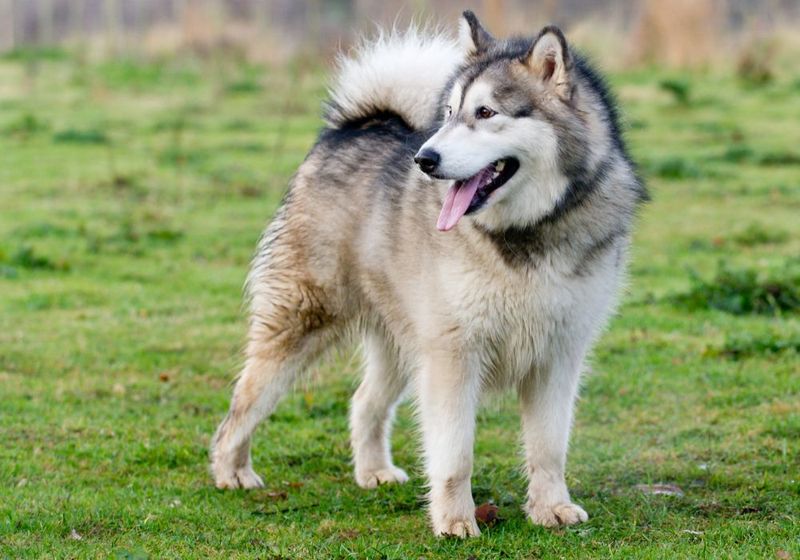
Majestic and powerful, Alaskan Malamutes were developed by the Mahlemut Inuit tribe as freight-hauling dogs with natural hunting abilities. Their pack mentality and prey drive make them challenging companions for cats.
Unlike some dogs who might chase but not harm, Malamutes were utilized for actual hunting. Their size advantage makes them particularly dangerous to cats if predatory instincts activate. Early socialization helps but rarely eliminates their natural tendency to view small, quick animals as prey.
10. Pit Bull Terriers: Tenacious And Strong
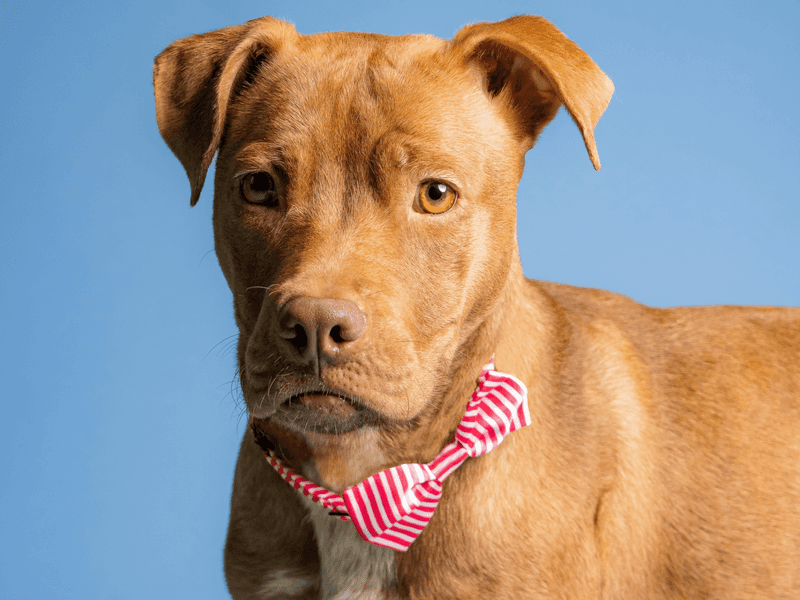
Controversy surrounds these muscular dogs, but their history as fighting and ratting breeds gave them characteristics that can make cat cohabitation challenging. Their terrier heritage includes a strong prey drive and tenacity once engaged.
Pit Bulls possess incredible jaw strength and determination. While many are gentle with proper training, their play style – featuring body-slamming and rough-and-tumble antics – can terrify or injure cats. Individual temperament varies widely, with some becoming devoted cat protectors while others remain perpetual pursuers.
11. Golden Retrievers: Gentle Cat Companions
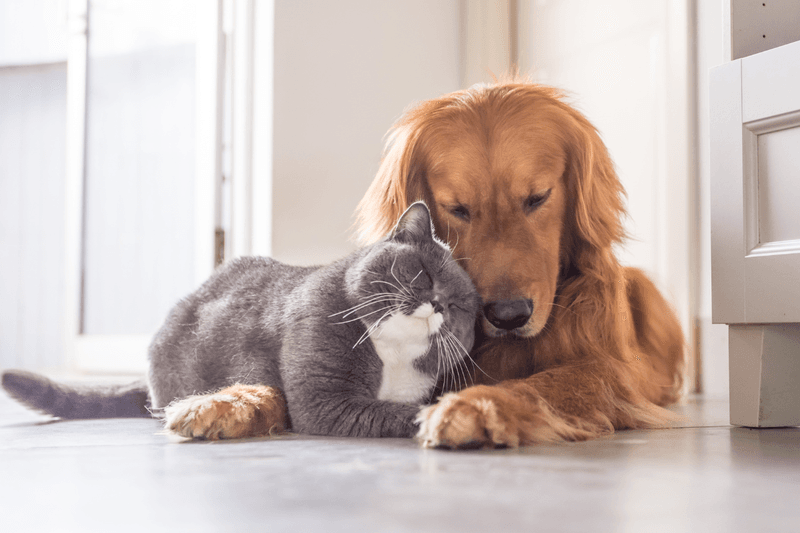
Behind those soulful eyes lies a dog with remarkable emotional intelligence. Golden Retrievers typically approach cats with the same gentle demeanor they show children – patient, calm, and respectful of boundaries.
Their soft mouths, bred for retrieving game without damage, translate to gentle interactions with feline friends. Goldens’ adaptable nature and eagerness to please make them readily trainable to respect cats’ space. Many cat-Golden households report the ultimate friendship goal: cuddle puddles of interspecies harmony.
12. Basset Hounds: Laid-Back Buddies
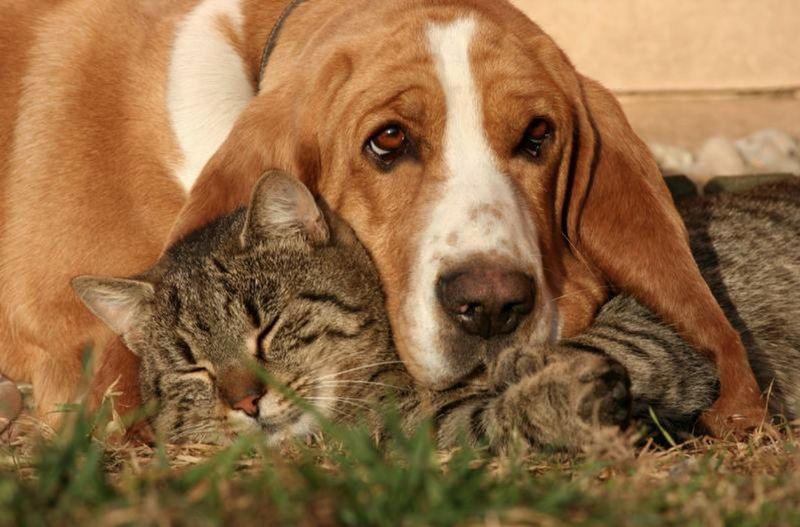
Those droopy eyes and ears belong to one of the most easygoing breeds in the canine world. Basset Hounds move at a pace cats appreciate – slow and deliberate – rarely triggering the feline flight response that activates prey drive in other dogs.
Their mellow temperament and low energy levels make them non-threatening neighbors for cats. While technically hunting dogs, modern Bassets typically prefer napping to chasing. Many cat owners report their Bassets becoming favorite snuggle partners for even the most selective felines.
13. Bichon Frise: Fluffy Feline Friends
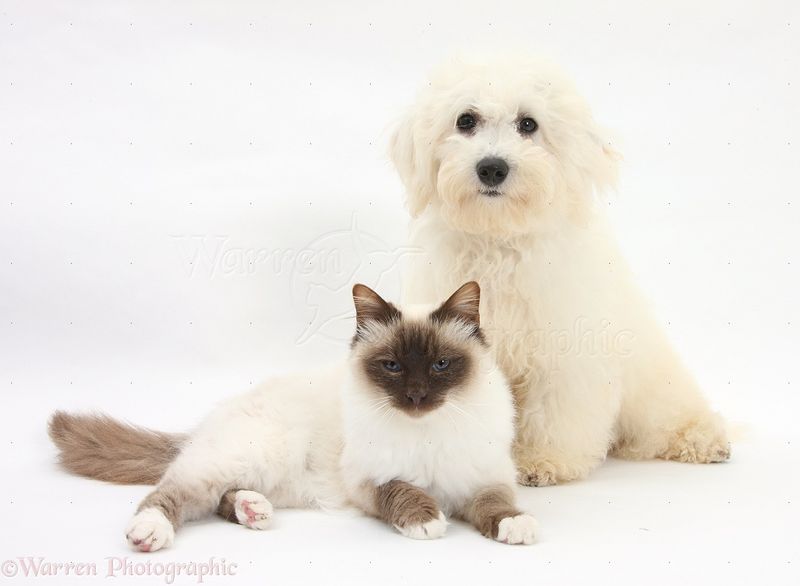
These cotton-ball puffs of joy bring circus-clown personalities without the predatory baggage many dogs carry. Bichons were bred purely as companion animals, lacking the hunting instincts that make many breeds problematic for cat households.
Their small size puts cats on more equal physical footing, reducing intimidation. Bichons’ playful but gentle demeanor often appeals to cats’ own play style. Their adaptable, cheerful nature makes them remarkably accepting of feline housemates, often resulting in unexpected friendships.
14. Newfoundlands: Gentle Giants
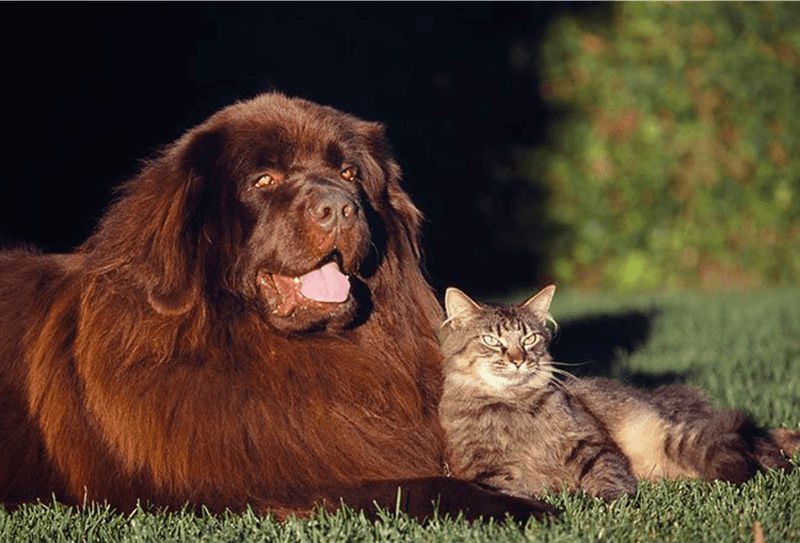
Despite their enormous size, Newfoundlands possess one of the sweetest temperaments in dogdom. Their natural protective instincts often extend to cats, whom they may view as small members of their family needing care.
Nicknamed “nanny dogs” for their patience with children, Newfies bring this same gentle approach to feline interactions. Their slow movements and calm demeanor rarely trigger cats’ fear responses. Many Newfoundland owners report their giant dogs becoming protective guardians of household cats.
15. Pugs: Comical Cat-Friendly Companions
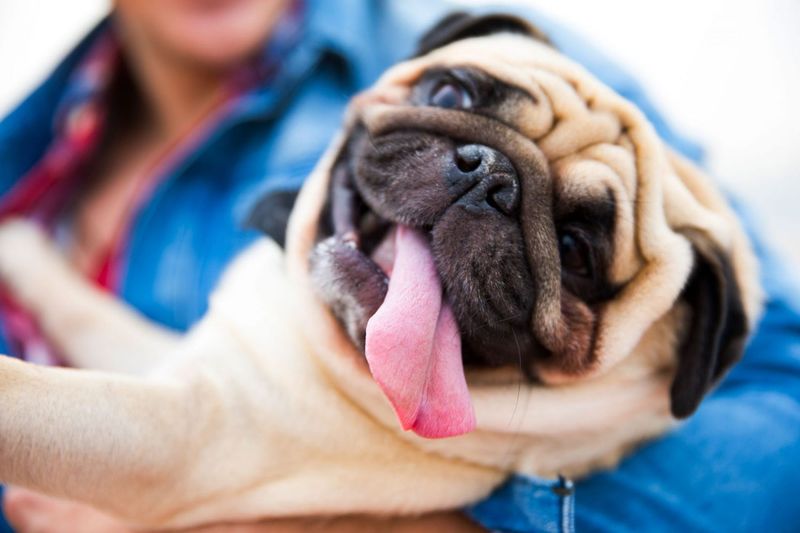
With their smooshed faces and cork-screw tails, Pugs bring comedy without the prey drive. Their history as companion dogs rather than hunters means they view cats as potential playmates rather than targets.
Pugs’ small size and non-threatening play style often appeal to cats. Their adaptable, laid-back nature helps them accept feline household members with minimal fuss. Many Pug owners discover their dogs actively seeking friendship with cats, sometimes to the point of mimicking feline behaviors!

